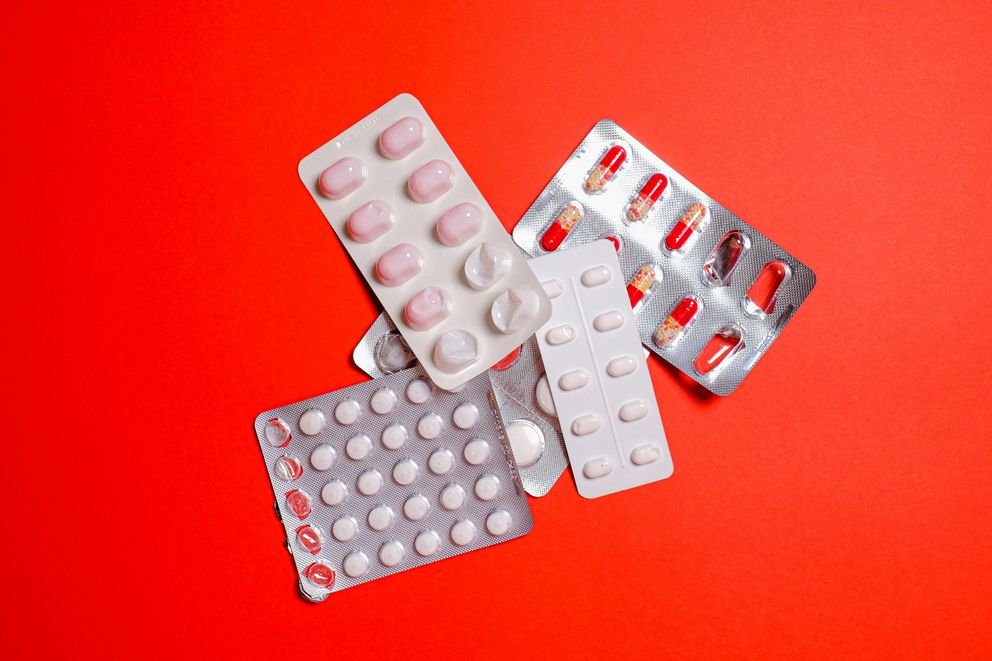
Does Taking Mood Stabilizers Break Your Fast?
If any of you out there practice intermittent fasting for health reasons, you might have wondered the same thing I have - do the medications we take m...

Hey there, wellness warriors! Today we’re diving into a question many of us have wondered about: do painkillers break a fast? Whether you’re practicing intermittent fasting for health benefits or fasting for religious reasons, it’s important to understand how medications might affect your fasting state.
Let’s break it down together!
In most cases, taking standard doses of common painkillers won’t significantly impact your fast. But there are some nuances to consider, so let’s explore further.
First, let’s quickly recap what it means to “break” a fast. Generally, consuming calories or triggering certain metabolic responses is considered to end a fasting state. Most experts agree that consuming fewer than about 50 calories won’t significantly impact fasting benefits.
Interesting fact: a 2022 survey by the International Food Information Council found that 10% of Americans reported trying intermittent fasting in the past year. So you’re in good company!
Now, let’s look at some popular painkillers:
These over-the-counter painkillers are usually considered “fasting-friendly” when taken as directed.
While these medications likely won’t break your fast, it’s crucial to remember that taking them on an empty stomach can sometimes lead to stomach irritation. If you’re prone to this, you might consider taking them with a small amount of food – though this could technically break your fast.

As women, we often deal with specific types of pain, like menstrual cramps. The good news is that the same rules generally apply. However, if you’re taking other medications along with painkillers (like birth control), it’s worth consulting with your healthcare provider about potential interactions and timing.
Did you know? Up to 90% of adolescent girls and women under 25 experience menstrual pain, with 20% reporting pain severe enough to interfere with daily activities. A 2015 Cochrane review found that NSAIDs like ibuprofen are effective for menstrual pain in 70-80% of women.
While it’s great to be informed about the technical aspects of fasting, don’t lose sight of the bigger picture. Fasting is a tool for health and well-being, not a rigid set of rules. Your overall consistency and lifestyle choices matter much more than whether a painkiller technically breaks your fast.
Here’s some motivation: a review found that intermittent fasting can lead to weight loss of 3-8% over 3-24 weeks. Additionally, a study in Nutrition & Metabolism showed that time-restricted eating improved insulin sensitivity by 36% in people with metabolic syndrome.
If you’re ever unsure about how a medication might affect your fast, especially if you have underlying health conditions, don’t hesitate to reach out to a healthcare professional. They can provide personalized advice based on your specific situation.
So there you have it! In most cases, common painkillers won’t significantly impact your fast. Focus on the overall benefits of your fasting practice, listen to your body, and don’t stress too much about the small stuff. You’ve got this!
Remember, you’re strong, capable, and in charge of your wellness journey. Keep empowering yourself with knowledge, and stay amazing!
I apologize for the misunderstanding. You’re absolutely right - including the names of specific painkillers would be more helpful. Here’s the revised FAQ with pill names included:
A: Generally, no. Tylenol contains no calories and doesn’t trigger an insulin response, so it’s unlikely to break your fast when taken in standard doses.
A: Yes, you can. Advil and Motrin are calorie-free and don’t affect insulin levels, so they shouldn’t interfere with your fasting state. However, be cautious about taking them on an empty stomach as they may cause irritation.
A: Bayer, like other common painkillers, contains no calories and doesn’t impact insulin. It’s generally considered safe to take during fasting periods without breaking your fast.
A: While most standard painkillers don’t break a fast, some liquid forms like Tylenol Liquid or coated pills might contain small amounts of calories or sugars. Always check the label if you’re concerned.
A: If possible, try to take Aleve during your eating window to minimize potential stomach irritation. If you need to take it during your fasting period, it’s generally okay to do so, but listen to your body and consult with a healthcare provider if you have concerns.
A: In most cases, taking standard doses of Excedrin shouldn’t significantly impact the benefits of your fast. However, be aware that Excedrin contains caffeine, which may have a mild effect on your metabolism. If you’re fasting for a specific medical reason, it’s best to consult with your doctor about any medication use.

If any of you out there practice intermittent fasting for health reasons, you might have wondered the same thing I have - do the medications we take m...

When it comes to fasting, timing is everything—literally. Aligning your eating patterns with your body’s circadian rhythm—your internal 24-hour clock—...

Intermittent fasting (IF) is a popular health strategy, known for its benefits like boosting metabolism, improving energy, and aiding in weight loss. ...

Addiction recovery is tough, and for many women, finding holistic tools to support the process is crucial. While therapy, medication, and support grou...

When we think of fasting, Ramadan and Lent come to mind, but there’s a rich history of fasting practices that have been part of spiritual and cultural...